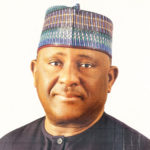Genuine regard for others through benevolent activities and efforts is something I hold very dear to my heart. I have even institutionalized this in my own little way by establishing philanthropic foundations.
However, my study of social intelligence and its relevance to value-based leadership has made it clearer that contribution to the greater good engenders leader’s effectiveness. The survival, wellbeing and emotions of customers and potential customers must be managed from the point of view of “producing user-friendly and highly beneficial goods and services.” Effective leaders must know that the society is our “working” platform and social intelligence is inextricably pivotal to the “biology of leadership.” Leaders’ problem-solving and creative thinking activities must guarantee good health and physical wellbeing (authentic salutary contributions) to the society. Professor Patrick Utomi said in one of his speeches that “leaders must serve to live and live to serve.”
This beneficial value-adding thrust is practicable and our organisation is doing it already through creativity, efficiency, technology and strong controls. An example is the micro insurance product for traders. A hardworking woman, who sells tomatoes at the Oyingbo Market in Lagos mainland (Lagos State, Nigeria) bought this product at N100 and one day “in the line of duty,” she collapsed as a result of exhaustion. The insurance product fully paid for her medical expenses as well as gave her N100,000 as indemnity. This enabled her to grow her business from one basket of tomatoes to two baskets.
Another value-adding contribution to the society we are also working at is growing managers to become tomorrow’s highly skilled leaders. Our “people performance” strategy is designed to unlock talents and develop mental toughness for performance and cognitive control. Employees are supported to be task and performance oriented not ego-oriented. The idea is to showcase this always as a useful skill for effectiveness.
Team members must imbibe the fact that success is not an entitlement. You must work hard at it by maximising your potentials. My leadership style aligns with Peter Drucker’s definition of leadership as “lifting a person’s vision to high sights, the raising of a person’s performance to a higher standard, the building of a personality beyond its normal limitations.”
It is worthy of note that outstanding leadership activities should make us pay specific purpose-oriented closer attention to innovation and creativity, integrity and relevant technology for the good of the society.
Brands must perform value-creating activities for consumers and potential customers. Brands must become “meaning-based relational assets” that are carefully designed and specially curated with affordability in mind. It must not just be at affordable prices but must also deliver intrinsic benefits for survival and wellbeing.
The mantra of leadership should be “we must give back.” It is social responsibility that comes with wealth creation. We must give back not just philanthropic endeavours and CSRs, but also affordable and beneficial services and products.
We must grow leaders, managers and employees in innovation and result-oriented decision-making, brand differentiation and connection with customers, transparency in team dynamics, purpose beyond profitability, regular engagement for influence, openness to constructive criticisms and constant feedbacks, adaptability and willingness to change when new ideas and information come in, deep productive and committed engagement by asking the right questions and listening, being on top of the pace of change in the market place and tenacious focus on compelling comprehensive value-adding purpose.
Effective leaders should imbibe the fact that creativity would stimulate and enhance individual and organisational success. It would provide effective solutions to challenges and of course, turn weaknesses to strengths. The excitement engendered by creativity promotes collaboration. Unity of purpose has evolutionary advantages that pro-actively shifts contextual focus and gives a fillip to selection development, goals options and novel variations.
Let me note by quoting Nelson Mandela that “Education is the most powerful weapon we can use to change the society. We can never have an impact on society if we have not (upgraded) ourselves.” Knowledge empowers us to make informed, relevant and highly beneficial decisions. It also helps us to, with accuracy and design thinking, unlock opportunities. Formal education and self-education enable us to acquire higher specialised knowledge that would set us apart for unprecedented success. The hunger for knowledge is a commitment to self-improvement. Education is a powerful tool that transforms life with immense benefits. We must therefore, open-up ourselves to new ideas, strategies and perspectives.
It is incumbent on leaders to expand their reach and open new doors. We must create and foster new as well as sustainable and beneficial initiatives to achieve goals. We must think beyond the conventional and unleash potentials with visionary mindsets.
Value innovation can provide higher benefits at affordable costs. For instance, if you examine closely the “strategy canvas,” customers may not be getting the value they expect from what competitors are offering. With the four-action framework, you can reduce, eliminate, raise and create better benefits for the market at affordable prices. Also, you can carefully scrutinise and look beyond the “noise,” the functional and emotional appeals to customers and draw them to you with beneficial values.
Several factors can be factored into the new “affordable value bridging” model in order to achieve the purpose. They include benefits versus the price and feelings versus unique experience. Analyse the size-of-pocket (SOP) pattern of those you want to target. Those you would want to intentionally shore-up their wellbeing. Then focus on the key factors that you can work on to make products and services affordable.
Effective leaders must make tomorrow better than today for our fellow citizens. We can be the difference maker by honing and strengthening our skills and ingenuity to make tomorrow better than today for our fellow citizens. Definitely, profitability with integrity can ride on affordable values.
READ ALSO FROM NIGERIAN TRIBUNE
WATCH TOP VIDEOS FROM NIGERIAN TRIBUNE TV
- Let’s Talk About SELF-AWARENESS
- Is Your Confidence Mistaken for Pride? Let’s talk about it
- Is Etiquette About Perfection…Or Just Not Being Rude?
- Top Psychologist Reveal 3 Signs You’re Struggling With Imposter Syndrome
- Do You Pick Up Work-Related Calls at Midnight or Never? Let’s Talk About Boundaries







